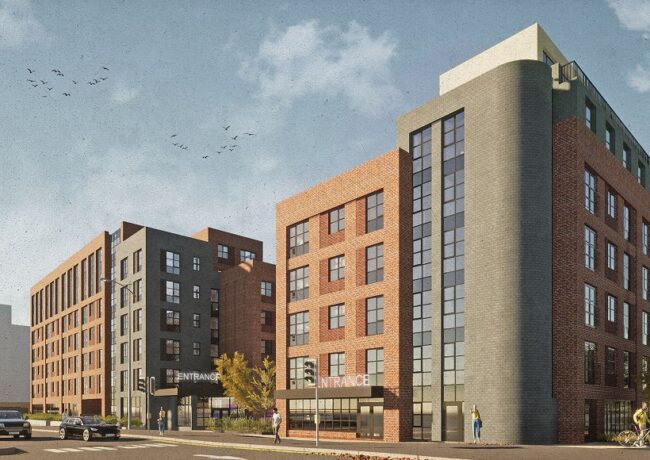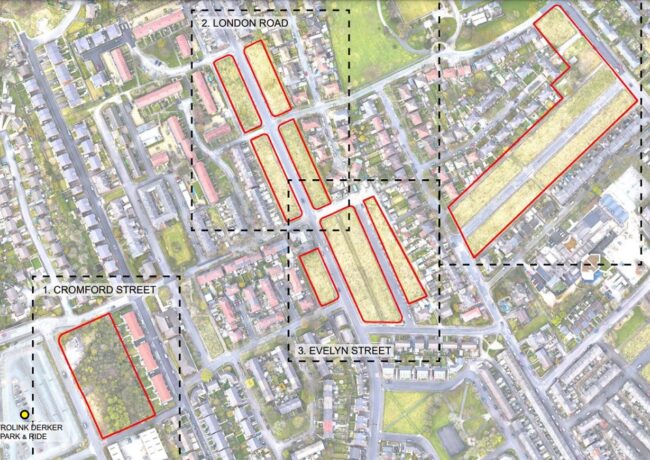Uni to unveil ‘Energy House’ at conference
Salford University has confirmed it will reveal its replica pre-1920s house, built within a laboratory to study domestic energy consumption, in January.
The university said the Energy House project will be on show at the UK's first conference about the challenge of how to sustainably retrofit existing housing stock.
The Energy House project was launched in May this year and is nearing completion which has involved a synonymous Salford terrace property being built within a three-storey sealed chamber to accurately monitor heat loss, domestic energy usage and carbon dioxide emissions, providing an insight into the efficiency of older homes within the UK.
Reclaimed materials including timber, roof tiles and 20,000 bricks from recently demolished North West terraced homes, are being used to build the replica property.
A laboratory is being built next to the house to monitor the effects of a range of external climatic conditions, recreated by an internal weather simulation system with snow cannons and temperature and humidity devices.
The university said the conference and Energy House project is a response to sustainability challenges and the government's policies to meet them.
Martin Hall, Salford University's vice-chancellor, said: "This project is exciting because retro-fitting old properties to make them as carbon-efficient as possible will require detailed and robust research.
"If there is to be a step change in the UK to achieve our carbon emission reduction targets, it is essential decision-makers have sound evidence to ensure products are tested before being tried out in real homes.
"The data produced at the University of Salford will support the refurbishment sector and homeowners in making correct decisions when improving the energy performance of existing homes.
"The unique cross-discipline nature of The Energy Hub also means that our academics, experts and specialists from a range of fields can access and interpret the data, and work together to find innovative solutions."
Under its 'Green Deal' legislation, the government wants to enable homeowners to make their house or flat energy-efficient, by installing insulation and draught-proof doors and windows with no immediate payments.
Salford University said to cost-effectively retrofit old properties and make them as carbon-efficient as possible it requires detailed and robust research.
ISG, main contractor of the Energy House project, is principle sponsor of the conference running at the university on Wednesday 26 and Thursday 27 January 2011.
Places at the conference are free but delegate numbers are limited.
- For more details of the conference or to register your interest contact Steve Waterworth on email s.d.waterworth@salford.ac.uk




Brilliant and exciting research. I hope all goes well for them and that the budget for such an essential and worthwhile study is not cut short next year. Good luck guys and I look forward to hearing your recommendations on how to retro-fit a property to make it more energy efficient as my early 1900’s semi is bloomin freezing!!!
By Andrea Baron
Absolutely concur – vital work. My 1930’s red brick terrace is also rather draughty/cold despite loft insulation, cavity wall insulation, half the windows being double glazed etc. Love to know how to improve things. The house might look good but expensive to run!
By Janet Dunnett
the answer is simple: loose a war or two and rebuild your entire desolate housing stock: look at Germany!
By the whalley ranger
Whalley Ranger, it’s “lose” a war, you retard.
By SPELLING